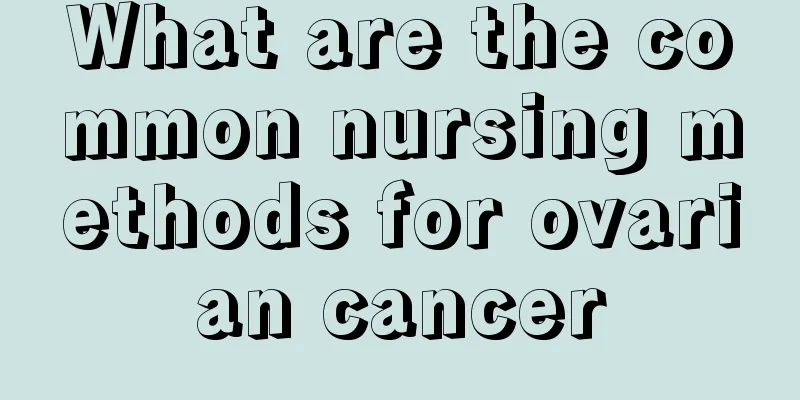What to do if you have nasopharyngeal cancer

|
What should you do if you have nasopharyngeal cancer? Nasopharyngeal cancer is a malignant tumor with a relatively high incidence rate, which is very harmful to humans. With the continuous development and progress of medical technology, the treatment of nasopharyngeal cancer has achieved certain results. So, what should you do if you have nasopharyngeal cancer? The following is a detailed introduction for you. 1. Radiotherapy: Most nasopharyngeal carcinomas are moderately sensitive to radiotherapy, and radiotherapy is the first choice for nasopharyngeal carcinoma. However, for highly differentiated cancers, advanced disease course, and recurrence after radiotherapy, surgical resection and chemotherapy are also indispensable means. 2. Chemotherapy: mainly used for mid- and late-stage cases. It is an auxiliary or palliative treatment for patients who cannot be controlled or relapse after radiotherapy. There are three common ways of administration: (1) Systemic chemotherapy: It can be taken orally, injected intramuscularly, or intravenously. Commonly used drugs include nitrogen mustard, cyclophosphamide, 5-fluorouracil, bleomycin, thiotepa, etc. One drug can be used alone or in combination. (2) Half-body chemotherapy: It is a therapy that compresses the abdominal aorta, temporarily blocks the blood circulation in the lower body, and rapidly injects nitrogen mustard into the veins of the upper limbs. The nitrogen mustard takes effect 2 to 3 minutes after injection into the body, and the drug potency is reduced by half after 15 minutes. This can both increase the drug concentration in the upper body and protect the bone marrow hematopoietic function in the lower body. (3) Arterial catheterization chemotherapy: It can increase the drug concentration in the nasopharynx and reduce systemic side effects. Anticancer drugs are injected through retrograde catheterization of the superficial temporal artery or facial artery. It has a certain short-term efficacy for early (stage I and II) cases with single small upper deep cervical lymph node metastasis, late-stage cases with cranial nerve involvement, or local residual or recurrent cases in the nasopharynx after radiotherapy. 3. Surgery: It is not the main treatment method and is only performed in a few cases. Its indications are: patients with localized lesions in the nasopharynx that do not disappear or recur after radiotherapy. For patients with metastatic lymph nodes in the neck that do not disappear after radiotherapy and present as active solitary masses, and patients whose primary lesions in the nasopharynx have been controlled, neck lymph node dissection can be performed. Nasopharyngeal carcinoma is mainly treated with radiotherapy, and residual lesions can be surgically removed. The irradiation range includes the nasopharynx, skull base, neck and orbit. The dose for the primary lesion is 65-70 Gy, and the dose for the secondary lesion is 50-60 Gy. Because the tumor is prone to recurrence and early metastasis, the prognosis is poor. The 5-year survival rate of squamous cell carcinoma that is insensitive to radiation is 0%-10%, and the 5-year survival rate of radiosensitive lymphoepithelioma is about 30%. |
<<: Is small cell lung cancer related to genetics?
>>: What are the precautions for breast cancer chemotherapy
Recommend
Causes and treatments of intracranial aneurysms
Intracranial aneurysm is a disease that occurs on...
What is flat feet
Flat feet are very common in our lives. Many peop...
Wearing a bra to sleep increases the risk of breast cancer? Experts remind you not to wear a bra for more than 12 hours
Wearing a bra to sleep increases the risk of brea...
Diagnosis of laryngeal cancer
Laryngeal cancer accounts for about 1% to 2% of a...
Is gypsum harmful to the human body?
Gypsum is actually calcium carbonate, and gypsum ...
Eight good ways to keep you from catching a cold this winter
As winter approaches, the colder weather makes it...
Is benzoyl peroxide effective for acne treatment
The acne problem bothers many people, so of cours...
What foods are better for asthma?
Asthma is a common respiratory disease, a recogni...
Water is the best "medicine" to prevent stomach cancer
Epidemiological surveys over the past two decades...
What are the best treatments for lung cancer? There are 3 best treatments for lung cancer
Lung cancer can cause harm to us. I believe many ...
Which hospital is best for endometrial cancer
Endometrial cancer is a group of epithelial malig...
What to eat to eliminate acne caused by lung heat
Some people's skin is always not very good, a...
Pain when pressing on the left side of your Adam's apple?
If you feel pain when pressing the left side of y...
What causes warts on the body
Warts on the body are mainly caused by viral infe...
Can eating pomegranates cure kidney stones?
The kidney is an extremely important organ for th...









